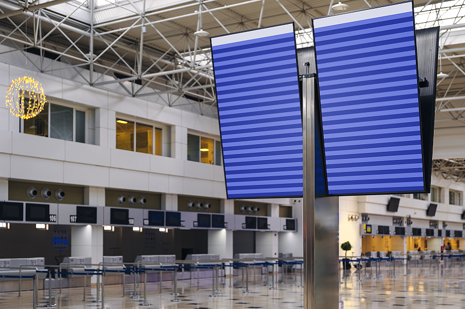
Prior to Covid-19, the United Kingdom was the world’s third-largest air passenger market. The collapse in air travel demand has hit the UK’s airlines hard, a problem that has been exacerbated by the Government’s implementation of a strict 14-day quarantine on almost all international destinations, and going even further this month with a complete ban on outbound international leisure travel.
The failure of the UK to restart its aviation markets threatens more than half a million jobs in the country. Under pressure from travelers, the tourism and aviation industries, the Government has set up a Global Travel Taskforce to study how Covid-19 testing could work. As part of the evidence to submit to the Taskforce, the UK industry, including IATA, asked Oxera and Edge Health, a leading health consultancy, to investigate the effectiveness of the government’s current modelling that is driving its policy thinking and how various alternative options could work to safeguard public health while enabling air travel to restart.
The Oxera and Edge Health report is divided in three parts, looking at different aspect of travel and Covid-19 risk:
Part 1 - Review of evidence on testing on arrival schemes
Part 2 - Review of case studies of effectiveness of testing schemes
Part 3 - Modelling the effectiveness of airport testing regimes
We spoke to Simon McNamara, IATA’s Area Manager for UK and Ireland, to explain what Oxera and Edge Health have discovered, and what it potentially means for UK aviation.

The results of the work very much bring into question both the UK Government’s 14-day quarantine approach as an alternative to a testing regime and its assertion that a test on arrival will capture a low percentage of asymptomatic passengers. It’s important to stress that this independent modelling and work done is the most cutting-edge out there globally now and based not only on new, updated modelling, but also real work evidence of testing regimens in force around the world.
There are four key findings. The first is that The UK Government’s 14-day quarantine policy is the least effective policy option at preventing Covid-19 from entering the community, compared to all forms of passenger testing. Second, new modelling finds a single test on arrival is twice as effective as the 14-day policy, which supports IATA’s global call for a single test and zero quarantine. Third, if a ‘test and release’ regime is applied (as favored by the UK Government) , three days of quarantine is significantly more effective to minimize infectious days (by 60%) compared to ‘test and release’ after five days (53%) or seven days (45%). And finally, crucially, the updated modelling suggests that a single test on arrival would catch around 60% of infectious travelers, far higher than Public Health England’s 7% estimate which the study finds is based around outdated and flawed modelling that does not take account real world evidence.
What the report does is clearly show that the risk from cross-border infection is massively overstated were a testing regime be brought into place in the UK. We hope this work will give confidence to Government to safely restart aviation and abandon quarantine in favor of testing.
If we look at it in real terms based around travelers, a single test and zero quarantine for the projected weekly incoming passenger volumes of 409,800 from the EU in August 2020, the report estimates that just 45 infectious travelers, or 0.01% of air travelers, would be released into the local community. This is equivalent to one infectious person per 10,000 travelers, which can be compared to the 57 per 10,000 local community risk in England in September and October.
We have now submitted the reports as evidence to the UK’s new Taskforce and we hope it will help inform Government policy.
The UK Government’s Global Travel Taskforce will report to the UK Prime Minister in November on its preferred option on how a testing regime might be implemented. The UK Secretary of State for Transport is on record as saying they hope to have a scheme in place by early December.
The preferred option of Government is for a so called, ‘test and release scheme’ whereby a traveler can be released from quarantine after testing negative after a period of days self-isolation. The crucial factor will be the length of the self-isolation period. We think a test and immediate release with no quarantine is the best policy option, but we don’t know what eventual option will be chosen by the Government.
What is clear is that any testing will need to be privately funded by the traveler and at the moment Government is talking about requiring a period of self-isolation of between 5-7 days after arrival, although we hope this study will convince them to reduce that to zero days.
The current quarantine policy is devastating the travel industry in the UK. Tens of thousands of jobs have already been lost, families separated, business destroyed. The winter season is a traditionally a low period for the sector and with England now in a month-long lockdown across November, travel is all but shut down. The situation could not be worse, and the decisions Government takes will either save or destroy many thousands of jobs.
It is imperative that the UK Government implements a testing scheme by December at the latest, otherwise the outlook for the sector is bleak if it sticks with its current policy of quarantine only.
Additional information: